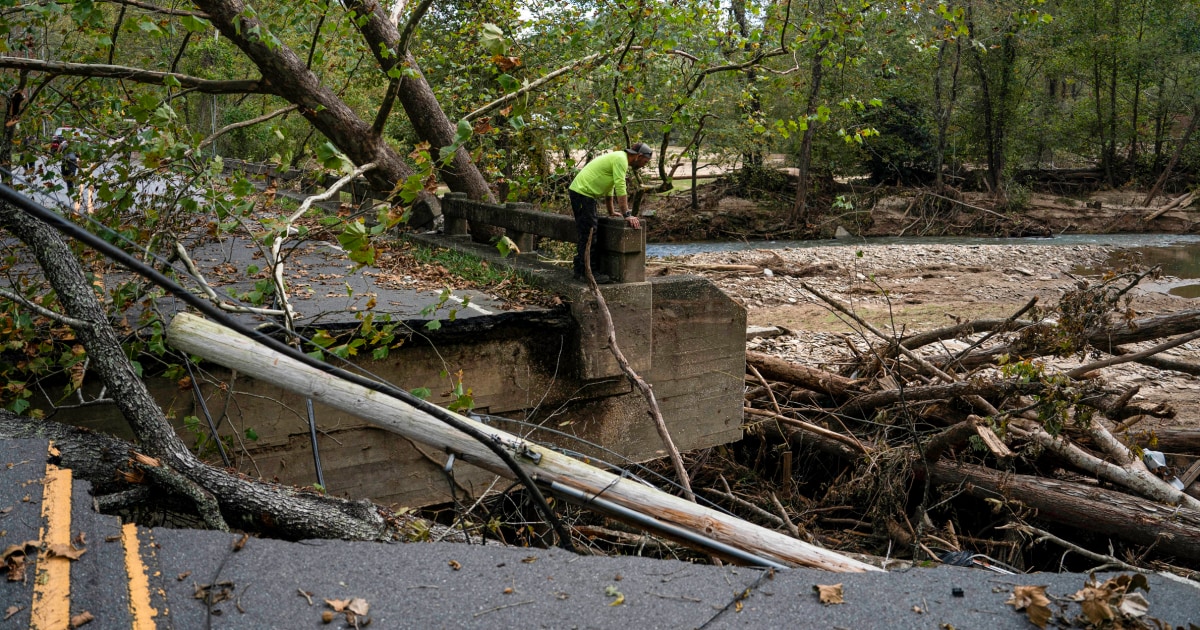Spear said that the devastation affecting not just to two-lane roads but major interstates in the area is blocking trucks from accessing communities in the Asheville area.
“North Carolina is just very, very different terrain, with service by road,” he said. “So until those roads are repaired, those bridges accessible, this is going to take a lot of time, and as a result, people are going to, they’re going to suffer.”
Robert Handfield, a professor and supply chain expert at North Carolina State University, told NBC News that the hurricane is “unprecedented” for the state.
“The storm has subsequently destroyed parts of I-40 and I-26, which are major thoroughfares for freight traffic, north, south, east, west, and you know, this is really impacting a large number of organizations in the state, not to mention all the people who have lost their homes,” Handfield said.
Handfield said it will take several weeks for the hard-hit areas to regain cell service and power, obtain all necessary medical supplies and clear their roads to allow trucks to bring goods in.
FEMA Administrator Deanne Criswell told NBC News that the first priority is still search and rescue, but closely followed by commodity delivery, then water restoration and, finally, recovery.
“We’ve been moving commodities, people, resources, into this area since before the storm hit,” Criswell said.
“We are going to continue to bring those resources in, listening to the local officials, one of the reasons I’m here is so I can see firsthand what’s needed, and people should know that we are going to be here until every person has everything they need,” she continued.
Chloe Demrovsky, executive in residence at New York University’s SPS Center for Global Affairs and a member of the FEMA National Advisory Council, told NBC News that because so much of the devastation happened hundreds of miles inland, a lot of the most damaged communities were not prepared for the storm.
She said that the circumstances in the region have left survivors with critical needs, as they’ll look to replace everything from everyday items, to rebuilding their homes and businesses, and buying new cars.
“So in a place like Florida, right, people know about hurricane season, they tend to prepare, they have a sense of how to deal with it,” Demrovsky said.
Read the full article here
